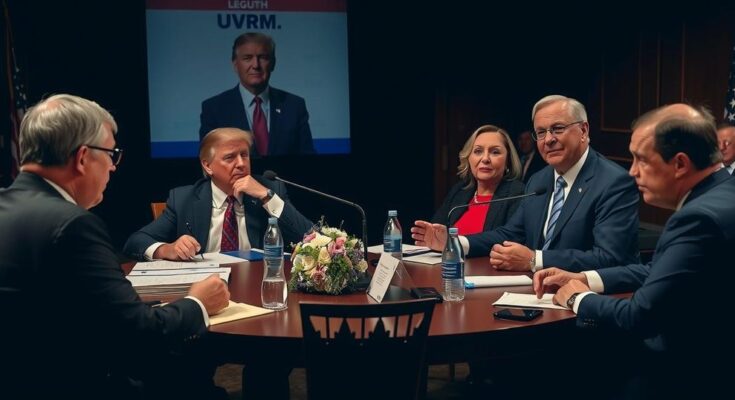Foreign leaders reacted swiftly to Donald Trump’s claimed victory in the 2024 election, with Israel expressing excitement and Europe showing mixed feelings of support and concern. Netanyahu celebrated the win, while European leaders like Macron and Starmer conveyed cautious optimism, highlighting the potential challenges ahead regarding NATO and U.S.-European relations. Russia also pointed towards possible shifts in the U.S. stance on Ukraine, indicating broader worldwide ramifications of Trump’s electoral success.
As former President Donald Trump claims victory in the 2024 U.S. presidential election, leaders from around the world begin responding to the news, each reflecting their own perspectives and political interests. Israeli Prime Minister Benjamin Netanyahu expressed enthusiasm for Trump’s return, proclaiming it as a significant victory for the alliance between Israel and the United States. Conversely, leaders in Europe, such as U.K. Prime Minister Keir Starmer and French President Emmanuel Macron, displayed a mix of congratulation and concern regarding Trump’s anticipated policies, particularly towards NATO and U.S.-European relations. In Hungary, President Viktor Orbán, a long-time supporter of Trump, celebrated his victory with claims of it being essential for the world. Meanwhile, Russian political figures saw potential for a shift in U.S. policy towards Ukraine, given Trump’s historical stance and promises regarding military aid. Notably, Ursula von der Leyen, President of the European Commission, acknowledged the importance of transatlantic ties while congratulating Trump, emphasizing the need for collaboration moving forward. This range of reactions illustrates the diverse and complex implications of Trump’s electoral success on global politics, particularly in relation to allies and adversaries alike.
The article discusses international reactions in the wake of Donald Trump’s claimed victory in the 2024 U.S. presidential election. Leaders from various nations have expressed their thoughts, revealing both affirmations of alliance and trepidations about potential policy shifts under Trump’s renewed leadership. The context includes heightened geopolitical tensions, significant conflicts such as the ongoing war in Gaza, and the broader implications for transatlantic cooperation. The responses from foreign leaders highlight their individual perspectives based on their national interests and historical ties with the United States.
In summary, the international responses to Donald Trump’s election victory reflect a complex interplay of support and apprehension. While some leaders, particularly from Israel and Hungary, openly celebrated his return, caution and uncertainty permeated the reactions of European leaders, who fear potential shifts in U.S. foreign policy. The overall responses suggest a period of adjustment in global relations as foreign leaders contemplate the implications of Trump’s second term for their countries and international alliances.
Original Source: www.cbsnews.com




